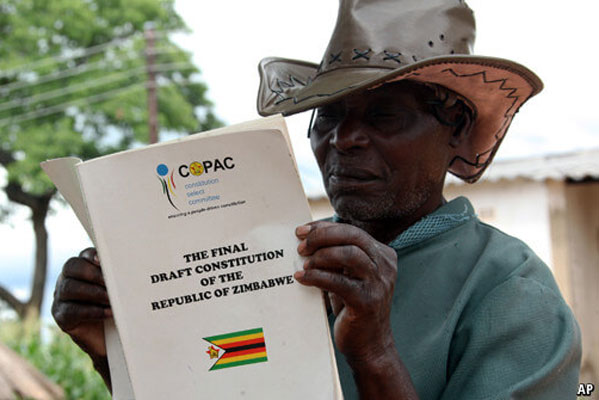
BY MIRIAM MANGWAYA
SECTION 11 of the Zimbabwean Labour Act sets the minimum age of admission into employment at 16 years, to curb exploitation of labour from children.
As a means of enforcement of this law, Section 19 of the constitution mandates the state to take appropriate legislative and other measures to protect children from exploitative labour practices.
The government has put in place several other legislation such as the Children’s Act and the Social Welfare Act to protect children from labour exploitation.
However, despite the existence of such statutes, and that Zimbabwe is a signatory to other international treaties which promote children’s rights, child labour practices are still on the rise in Zimbabwe.
Unicef, in its 2020 report on Covid-19 and child labour, noted that the pandemic posed the risk of communities backtracking on the strides already made in the fight against child labour, and the danger is that the practice could worsen, especially in places where child labour was rampant.
Unicef projected an estimated 8,9 million more children who are at risk of being pushed into child labour by the end of next year globally, due to the Covid-19 pandemic, and Zimbabwe has not been spared.
This has prompted the United Nations General Assembly to declare 2021 as the year for the elimination of child labour to scale up efforts to eradicate the practice.
- Chamisa under fire over US$120K donation
- Mavhunga puts DeMbare into Chibuku quarterfinals
- Pension funds bet on Cabora Bassa oilfields
- Councils defy govt fire tender directive
Keep Reading
While presenting oral evidence on policies to curb child labour before the parliamentary thematic committee on human rights recently, Public Service, Labour and Social Welfare minister Paul Mavima said child labour was especially prevalent in the tobacco industry.
He said the ministry had conducted a survey in the tobacco industry in 2019 and the results showed the sector had a 26% prevalence of child labour.
In Mashonaland Central province, one of the major tobacco farming areas, it is common for children, most between 14 and 16 years, to perform menial jobs on farms to help their struggling parents to fend for the families, according to a survey conducted by The Standard.
Fifteen-year-old Ezra (not his real name) in the Chakoma area, Mount Darwin, told The Standard that he had ceased to be perceived as a child the moment he dropped out of school two years ago.
He instead regards himself as a “man” who has an obligation to contribute to the welfare of the family.
“I am not a child anymore,” the boy said with confidence. “How am I supposed to spend the whole day lying idle at home when I am not going to school?
“I have to find something to do because our farmland is not that productive to produce enough to take care of the family.
This publication conducted in-depth interviews with three tobacco farmers, who all bemoaned lack of enforcement of the laws which prohibit child labour on farms despite its rampant existence in the province.
Mash Central Tobacco Farmers Union provincial chairperson Zenia Zebron confirmed that child labour was rife in the area.
Zebron said farm owners offered employment opportunities to children as a way of helping them to alleviate hunger and shortages of basic needs.
She said farmers continued to employ children mostly from poor backgrounds despite risks, which include work-related accidents and exposure to harmful substances.
“Even if the law exists, some farmers find it hard to turn away the kids looking for employment, knowing very well that they are on the verge of starvation,” Zebron said.
“Farmers grow tobacco for profit and cannot just give away freebies to the kids.
“Children facing economic hardships have to help the farmer in one way and in turn be rewarded in cash or kind.”
Another farmer, Pious Moyo of the Tobacco Farmers Union Trust, said there is need for strict penalties for farmers violating the laws protecting children from labour exploitation to deter would-be offenders.
“I am not aware of anyone, who has been arrested or prosecuted for recruiting children as employees at their farms though the practice is rampant,” Moyo said.
“As a union, we discourage farmers from making profit out of the proceeds of child labour.”
The government recently established institutional mechanisms for the enforcement of laws and regulations on child labour which include the Stop Child Labour programme, which introduced a bridge school that provides education and social services to former child labourers.
But due to prolonged restrictions of physical learning amid the pandemic, children are at high risk of engaging in child labour, as noted by the United Nations.
Unicef said child labour reinforces intergenerational poverty which is a threat to economies and undermines children’s rights guaranteed by the Convention on the Rights of the Child.
The child rights organisation said there is a distinction between labour activities promoting children development such as household chores and those labour engagements that interfere with schooling and are harmful to a child’s physical, mental, social and moral development.
“Children are often the most available labour in households,” Unicef stated.
“When households need more financial support, they turn to children. With poverty comes child labour as households use every available means to survive.
“Prospects vary by country, but causal estimates of elasticity are mostly above 0.7.
“In other words, a 1% rise in poverty leads to at least a 0.7%increase in child labour. In previous crises that propelled falling living standards, many low- and middle-income countries saw dramatic reversals in progress in reducing child labour and enrolling children in school.”
Tobacco Farmers Union of Zimbabwe president Believe Tevera told The Standard that child labour was also fuelling early marriages, sexually transmitted infections and promiscuity in Mashonaland Central province.
He said due to the Covid-19 pandemic, a number of breadwinners in the villages had lost employment and villagers, among them children, were flocking to farms looking for employment.
He said children were preferred as cheap labour due to their limited knowledge on the standard scale of wages they should get for jobs they would have done.
“Children are usually ignorant of the labour laws that guide them,” Tevera said.
“Children who are employed are vulnerable to various forms of abuse including sexually.
“This has given rise to child marriages and ultimately, a vicious cycle of poverty amongst vulnerable families.”
Child rights activist Ekenia Chifamba, who is also executive director at Shamwari Yemwanasikana, said poor law enforcement had resulted in members of the public being reluctant to notify authorities about violations of child labour laws.
“Natural disasters and emergencies, including the Covid-19 pandemic, always leave children and women vulnerable to abuse,” Chifamba said.
“In order to protect children from abuse during this pandemic, there is need to conscientise the community.”
This article was produced through sponsorship from WAN –INFRA Women In News (WIN) under the Social Impact Reporting Initiative. However, content does not reflect views of WAN- INFRA WIN.











